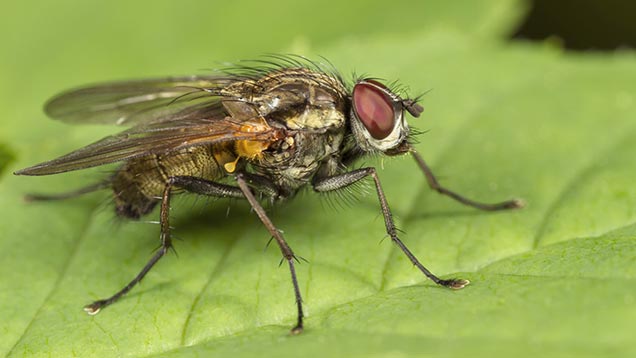Insects ‘no more risky than other proteins’ as animal feed
 © imageBROKER/REX Shutterstock
© imageBROKER/REX Shutterstock The risks posed by producing insect meal derived from insects fed on currently-permitted raw materials are no higher than those associated with other sources of animal protein, the European Food Safety Authority (Efsa) has said.
The assessment was conducted as the whole livestock feed sector seeks to find alternative sources of protein, to reduce the EU’s dependence on imports.
The Efsa study looked at the potential biological, chemical, allergenic and environmental risks associated with using farmed insects for animal feed.
See also: Video – feeding live insects to broilers
These risks would depend on things like the production method, what the insects were fed on (the substrate) and the stage at which they were harvested. So long as they were fed with currently-permitted substrates, then the risks were similar to other sources of protein.
Insect protein is seen as an alternative to soya bean or fishmeal, although current EU regulations forbid the feeding of processed animal protein to farm animals due to the BSE crisis. The rules mean that the insects themselves could only be fed material, which was already safe to feed to other animals.
The Efsa pinion was welcomed by Protelinsect, an EU-funded research project which has been looking into the potential use of different fly species, raised on a variety of substrates, primarily manures.
Dr Adrian Charlton, a Protelinsect partner and member of the Efsa scientific panel, said addressing the European protein deficit through the use of novel feeds was key to ensuing global food security.
“This opinion is a positive development. But as Efsa highlights, there is still work to be done to ensure robust safety and quality data is available for insect protein.“
Efsa also said that the use of other, currently forbidden, substrates to feed insects destined for animal feed, such as food waste and manures, must be further evaluated.
